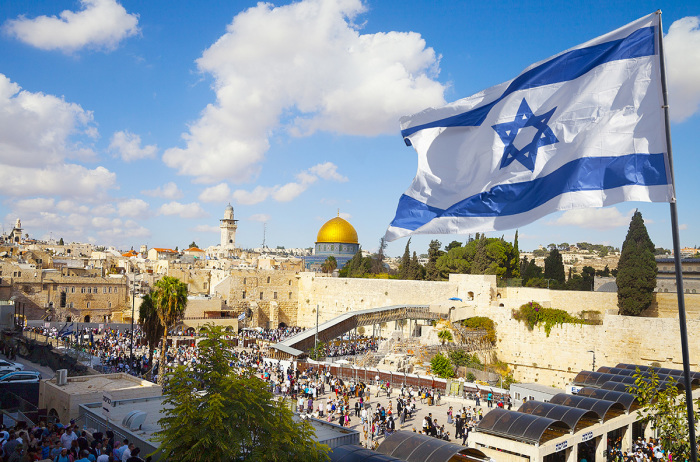Man who vandalized Last Supper site in Jerusalem banned from Old City for 30 days

A man suspected of being drunk vandalized a site believed to be where the Last Supper took place in what police are calling an attack of persecution against Christians in Israel.
An Israeli Jew in his 30s, who was reportedly under the influence of alcohol, was seen throwing rocks at the stained glass windows of the historic site, also called the Cenacle, earlier this month.
According to authorities, a security guard on the scene immediately detained the suspect, whose name has not been released to the public.
The suspect appeared before a Magistrate's Court judge the day after the incident, having denied all claims that he had thrown any stones at the historic Christian site, despite being found at the scene.
The man has since been released and is prohibited from entering Jerusalem's Old City for 30 days.
Following the incident, The Jerusalem Post reported that, coincidentally, a conference was being held in Jerusalem titled, "Why do certain Jews spit on Gentiles?"
The event had a variety of attendees, including researchers and lecturers from across the city's universities to discuss recent incidents of vandalism against Christians by Jews in Israel.
An independent researcher who attended the conference, Yasaka Harani, told The Jerusalem Post that what happened in the Room of the Last Supper was an unacceptable act of vandalism.
"I really don't care if he was drunk. The offenders are for some reason always ... in an outstanding situation," Harani said. "I gave the pictures of the shattered window to a Middle East expert who was present at the conference. This is how he replied to me: 'In the upper part of the verse are the words of God to David. And judge the nations with justice and do not follow those who turn your heart away.'"
Harani added that he felt it was "a shame that Jews who are drunk and unfortunately, also sober and alert, but who have distorted world views, do not allow their minds to follow the right path to which the verse points."
Gadi Dahan, a tour guide in Jerusalem, expressed similar sentiments at the meeting, sharing his disappointment about the incident among many others, according to The Jerusalem Post.
"About 10 years ago, they destroyed the ceramics that decorated and enriched King David's tomb. Unfortunately for us, we are torn between one extreme and the other," he said.
In recent years, there have been several attacks against Christians in Jerusalem, ranging from vandalism of holy sites to physical attacks on individuals.
In 2018, i24 News reported that a man had engaged in illegal archaeological digging at an ancient site known as Hekel Demeh. The historic site was once used by Christian pilgrims as a public burial ground.
At the time, someone caught for illegal archaeological digging and theft could serve up to half a decade behind bars.
"The Border Police and Israel Police view with great severity any attempt to damage sites that preserve the historical heritage in the Land of Israel,” read a 2018 statement released by Israel police at the time of the incident, as quoted by i24 News.
“Any person who carries out unauthorized activity at archaeological sites, harms or loots them, commits a crime of up to five years in prison."
In January, a group of people believed to be radical Jewish Israelis attacked an Armenian restaurant in the Christian quarter of the city, waving Israeli flags and throwing chairs at patrons.
The Assembly of Catholic Ordinaries of the Holy Land denounced the violence leveled against the Armenian Christian restaurant, expressing concern over “the escalation of violence in the Holy City.”
“This unprovoked violence instilled fear in the shopkeepers and residents of the Christian quarter as well as visitors,” stated the Assembly. “It is only the latest in a series of episodes of religious violence that is affecting the symbols of the Christian community and beyond.”
In a January 2022 statement, the Archbishop of Canterbury and the Anglican Archbishop of Jerusalem issued a warning of "a concerted attempt by fringe, radical groups to drive Christians away from the Holy Land."
"The Romanian Orthodox monastery in Jerusalem was vandalized during Lent in March this year, the fourth attack on that holy place in a single month," read the joint statement.
"During Advent last December, someone lit a fire in the Church of All Nations in the Garden of Gethsamene, the place where Jesus prayed the night before he was crucified. Usually a place of pilgrimage for Christians from around the world, it’s thought the vandal took advantage of the lack of visitors due to the pandemic."
The Church leaders concluded that their actions were "being used by such radical groups in a systematic attempt to drive the Christian community out of Jerusalem and other parts of the Holy Land."
Nicole Alcindor is a reporter for The Christian Post. She can be reached at: [email protected].



























